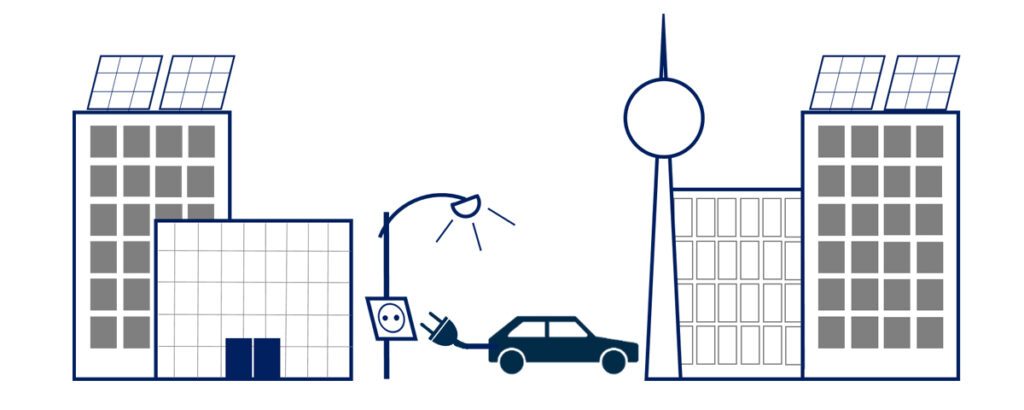RLI is a partner in a project of the “Clean Air Immediate Program” in Berlin
January 10th 2019 | RLI is a partner in the Creation of Mobile Metering Charging Points in Public Spaces project, which is being implemented as part of the “Clean Air Immediate Program 2017 to 2020”. The German Aerospace Center (Deutsches Zentrum für Luft- und Raumfahrt – DLR), which is the program’s network coordinator, announced today that the project, which is funded by the German Federal Ministry of Economics and Energy (BMWi), has been approved. The aim of the project is to promote the expansion of e-mobility in Berlin. Starting in 2019, up to 1,000 new charging points for electric vehicles will be installed in public spaces in the capital, as well as a further 600 in the private sector. The aim is to create incentives to switch from conventional vehicles with high pollutant emissions to e-vehicles.
The “Clean Air Immediate Program”, adopted by the federal government in November 2017, aims to improve air quality in cities. Concepts for the 90 cities with the worst NOx measurements were to be developed, including Berlin. The project, which has now been approved, aims to establish a cost-efficient charging infrastructure in Berlin in a timely manner in order to promote the expansion of e-mobility. The focus here is on charging infrastructure in public spaces for general use, the charging points will be installed on converted street lamps. In addition, charging points for private and commercial use will be created for the real estate industry, for example in underground garages.
Within the project, RLI will carry out air measurements to determine whether the improvement of the charging infrastructure has measurable effects on air quality. “We look forward to accompanying the project and are curious to see how the massive development of charging infrastructure in the neighborhoods will affect air quality,” says Oliver Arnhold, Head of the Research Unit Mobility with Renewable Energy at RLI. “We are particularly interested in bringing together the various findings of the project partners. In previous research projects, we have found that it is important to bundle the very complex aspects of charging infrastructure construction, such as approval processes, emissions, and network effects. In this way, we can create a compact decision-making basis for further expansion. With this in mind, we will also look at the potential for the local coupling of e-mobility and renewable energy in urban spaces.”
In addition to RLI, partners in the project are ubitricity Gesellschaft für verteilte Energiesysteme mbH (consortium leader), the Artificial Intelligence Laboratory (DAI Laboratory) at TU Berlin, GASAG Solution Plus GmbH, Hubject GmbH, and the Senate Department for the Environment, Transport, and Climate Protection.
Further information about the project can be found in ubitricity’s press release (in German).
